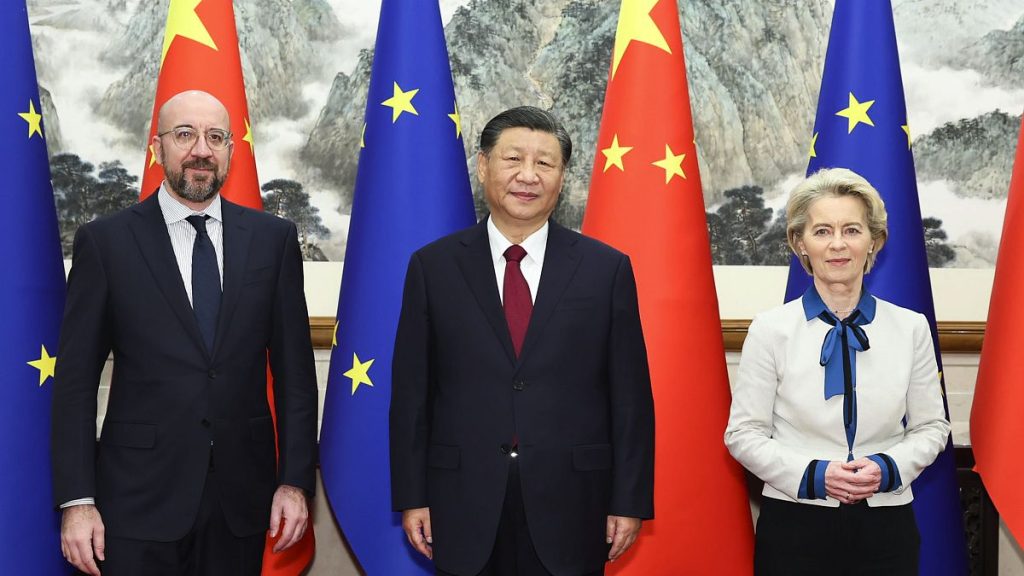Ambassador Cai Run’s op-ed piece for Euronews emphasizes the importance of a strong EU-China partnership amidst a complex and challenging global landscape. He highlights the upcoming 50th anniversary of diplomatic relations as an opportunity to reaffirm and strengthen ties, emphasizing the shared interests and potential for cooperation between the two entities. Cai frames the relationship as one of partnership rather than rivalry, stressing the far greater areas of consensus and cooperation that outweigh any divergence or competition. This positioning comes at a time of increased global uncertainties, including geopolitical tensions, rising protectionism, and a sluggish global economic recovery.
The ambassador’s message of collaboration contrasts with recent trade disputes between the EU and China. Notably, the EU imposed tariffs on Chinese electric vehicles after an investigation concluded that Chinese manufacturers benefited from substantial government support, giving them an unfair advantage over European automakers. China retaliated with its own investigations into European exports, including brandy, pork, and dairy products. While acknowledging the existence of such frictions, Cai advocates for dialogue and consultation to resolve these issues and avert a trade war, emphasizing that a cooperative approach is in the best interests of both sides and the global economy.
Cai’s op-ed projects confidence in China’s economic prospects despite domestic challenges like insufficient demand and pressures on employment and income growth. He underscores the country’s commitment to achieving its 2024 economic growth targets, emphasizing that the fundamentals of China’s long-term economic growth remain strong. He highlights China’s focus on technological advancement and the development of new industries, positioning China as willing to share these opportunities with Europe and the world. This includes opening the manufacturing sector to foreign investment and implementing visa-free policies for several countries, including many EU member states. Cai emphasizes China’s commitment to expanding high-level opening-up, aligning with international trade rules, and expanding a network of high-standard free trade zones.
The ambassador’s portrayal of China as a collaborative partner comes as the world anticipates the second term of the US presidency, with both the EU and China having been targets of previous US tariff policies. Cai positions China and the EU as significant forces in promoting multipolarity and globalization, and as champions of cultural diversity, arguing that these shared values minimize fundamental conflicts of interest. He reiterates the “partners not rivals” theme, contrasting with the EU’s previous characterization of China as simultaneously a partner, competitor, and systemic rival. This highlights the delicate balancing act the EU faces in its relationship with China: navigating the competing interests of member states, some of whom prioritize protecting domestic industries from Chinese competition, while others prioritize attracting Chinese investment and maintaining strong economic ties.
Cai’s piece underscores the complexities inherent in the EU-China relationship. While emphasizing cooperation and shared interests, the recent trade disputes reveal underlying tensions. The EU’s multi-faceted view of China as partner, competitor, and systemic rival underscores the challenges in defining and managing this relationship. China’s proactive outreach, as demonstrated by Cai’s article, highlights its desire for a stronger partnership. However, the EU’s response will likely be shaped by internal debates and the need to balance its economic interests with broader geopolitical considerations.
The EU’s approach to China is further complicated by the evolving transatlantic relationship and the unpredictable nature of US trade policies. The incoming US administration’s stance on China will undoubtedly influence the dynamics between the EU and China. The EU faces the difficult task of navigating these complex relationships while safeguarding its own interests and upholding its values. The anniversary of diplomatic relations next year provides an opportunity for both sides to address these challenges and potentially chart a new course for the future of EU-China relations. This will require open communication, mutual respect, and a willingness to address difficult issues, including trade imbalances, human rights, and intellectual property concerns. The future trajectory of this relationship will have significant implications for the global economic and political landscape.

